The mountains are adorned with a spectacular array of colorful flowers, resembling a vibrant garden. However, upon closer inspection, one would realize that the flowers are actually poppies, not a garden of assorted blooms.
.
The poppy plantations that resemble a spectrum of vibrant blooms are found in Tangyan Township in Northern Shan State. It takes a hard two-hour motorbike journey from Tangyan city to get there because of the rough roads.
The area is also known to be populated by armed groups.
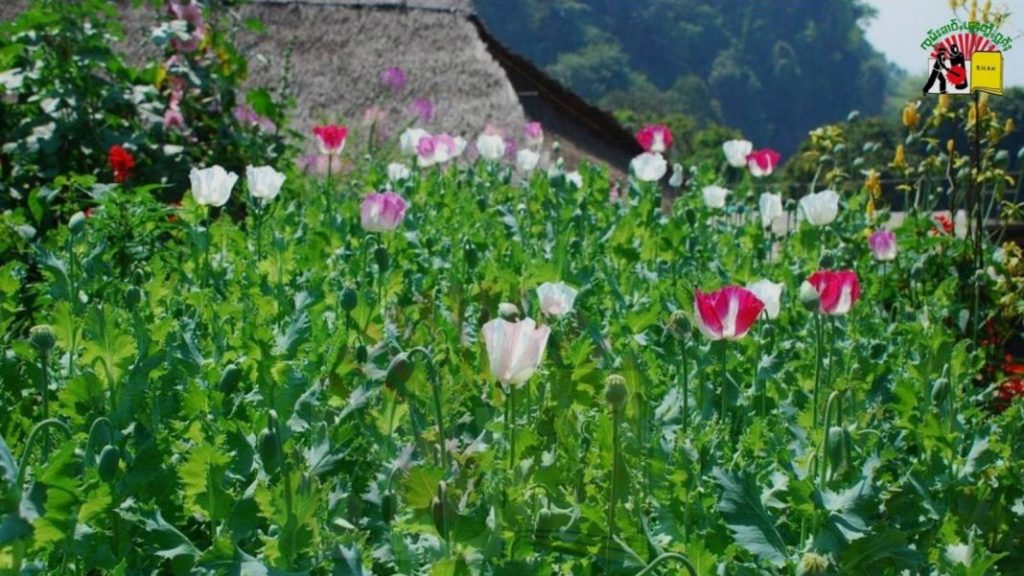
Loong Sai Sandi, a poppy cultivator from Tangyan, stated that, “we used to cultivate tea, but due to the tea industry’s decline and the inconvenience of waiting for the crop to come twice a year, I have to turn to cultivating poppy farm (for a half-acre)”.
Before turning to poppy cultivation, Loong Sai Sandi grew tea. However, with the outbreak of the Covid-19 pandemic and the subsequent suspension of trade, the prices of goods steadily increased. This situation was further compounded by the military coup that took place on 1st February, 2021.
As said by Loong Sai Sandi, “it appears that the weather is in my favor since it helps grow good poppies, which bring in a respectable profit. When compared to tea, which takes about two years to pay me exactly what I make from growing poppy plants for a year. That’s why I’m concentrating more on growing poppies “.
According to Loong Sai Sandi, he received very little money from growing tea because of the hefty taxes and fees levied not only by various armed groups but also by the Military Council and other government agencies. The net income from growing tea could not adequately feed his family.
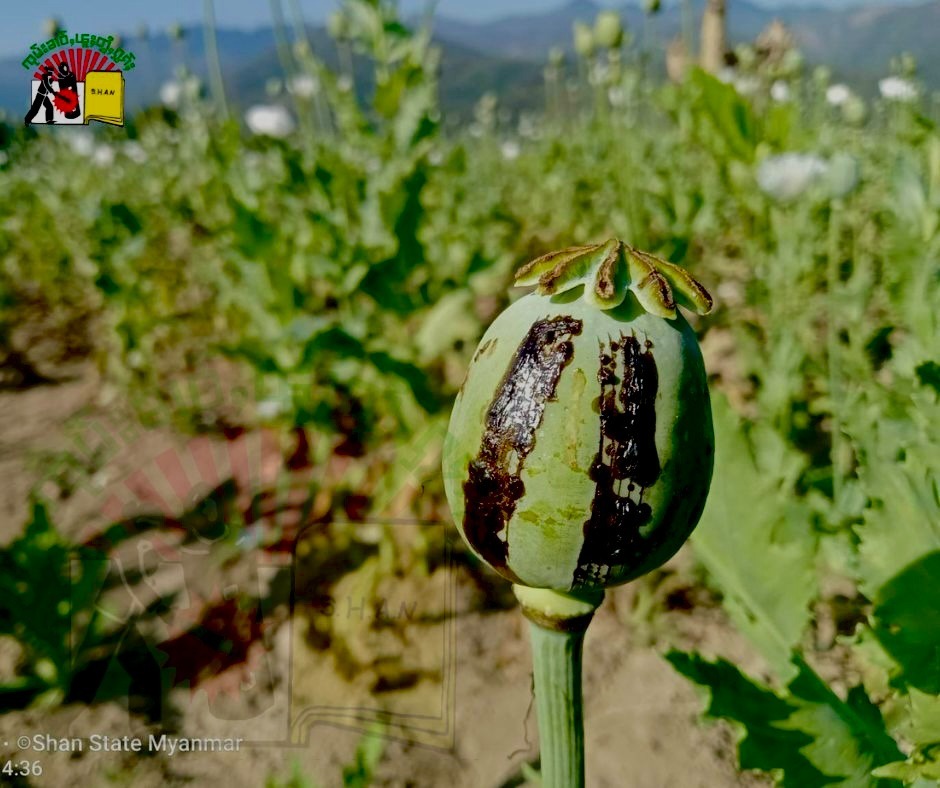
Due to difficulties in the tea industry and as a way to supplement their income, Loong Sai Sandi said that his family turned to poppy cultivation, which now gave them access to adequate food for self-sufficiency.
After the coup, the majority of the farmland in Tangyan Township that had been used to cultivate various crops has been converted to poppy fields. According to farmers from Tangyan, people started growing poppies instead of tea since the price of tea (fresh) was only 4,000–3,000 kyats per viss at this point.
Due to the surge in commodity prices, the cost of growing regular crops has grown to almost 1,500,000 Kyats per acre. In contrast, cultivating poppies only costs about 800,000 Kyats per acre. People in the neighborhood have stopped growing tea and started growing poppies as a result.
Loong Sai Sandi explained, “there are different armed groups in our area. We must have a sufficient income to pay the taxes that these various groups have demanded. The amount of tax collected was not as great in the past (when we still worked on tea plantations). Now, however, we must pay more taxes as requested by several groups, some of which are newly emerging”.
Poppy cultivation dropped before the military coup; it increased after the coup and the deteriorating political situation.
Also, Loong Sai Sandi recounted his observation that “certain ethnic armed groups also purchase opium through agents.”
The production of opium is well-known in Shan State, a region with a sizable population of armed carriers. According to the United Nations Office on Drugs and Crime (UNODC), opium cultivation may grow in Eastern Shan State as well as the main Shan State opium-growing towns and townships of Hopone, Pin Laung, Pekon, Panglong, Tangyan, and Namtu.
The drug monitoring group has suggested that the instability caused by the coup and the presence of various armed groups have contributed to a rise in poppy cultivation in Shan State.
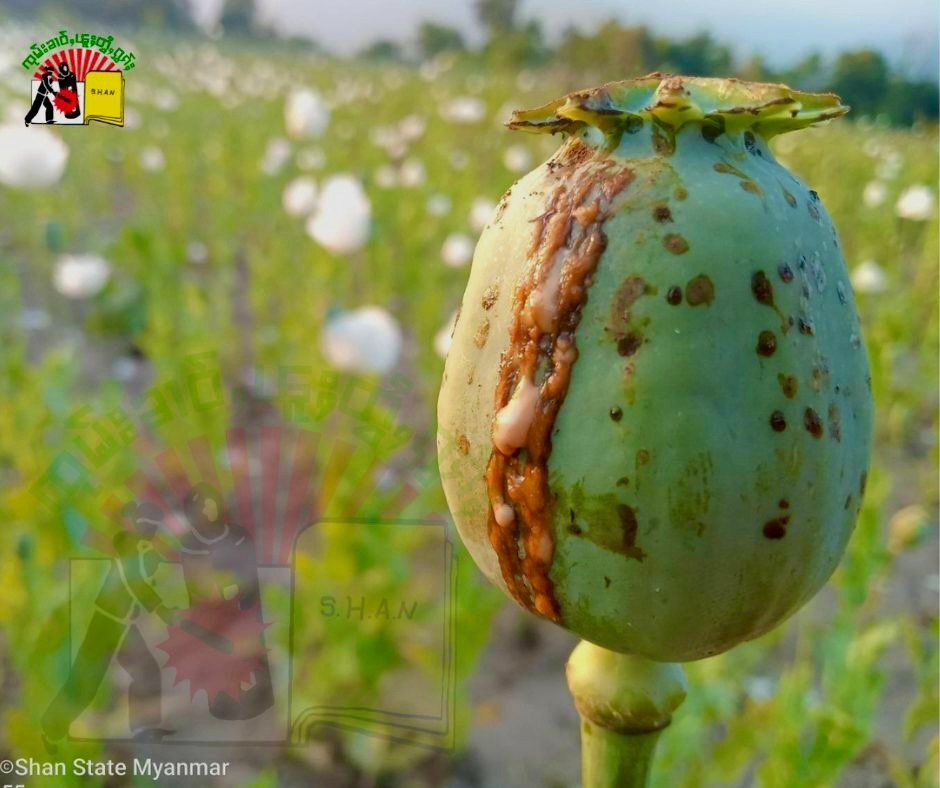
A Pa-O man in his 30s asserts that since the Covid-19 outbreak started, poppy cultivation has increased noticeably in the Pa-O National Organization (PNO) controlled Hopone and Pin Laung Townships.
The Pa-O man went on to say that “in Pinlaung and Hopone’s eastern slopes, opium cultivation has started to reappear. The present administration is likewise ignoring this problem. Also, the Pa-O National Army (PNA) militia group is involved, and it seems cultivating poppies is permitted as long as taxes are paid “.
According to the UNODC, Shan State is where the most opium is produced, and production has increased. Shan State produces 39% of the country’s opium, compared to Chin State’s 14%, Karenni/Kayah State’s 11%, and Kachin State’s 3%.
According to the UNODC, poppy cultivation has increased by an average of 41% in all States, producing over 10 kg of green opium per acre.
A Pa-O youth expressed his perspective that, “I believe that those people or groups who participate in drug-related activities did so before the coup. Since the coup, they have had a closer working relationship with the SAC military, and the authority has been ignoring these problems. There are also some ethnic armed groups participating.”
Sai Kham Phu, the manager of a drug research monitoring group in Shan State, observed that since the military assumed power, the state has seen the rise of new armed organizations in addition to those that were previously present, including militias backed by the military council. As a result, opium cultivation has increased significantly.
Sai Kham Phu explained that “traditionally ethnic revolutionary organizations are engaging in arms resistance with the military and also with one another sometimes. Fighting requires weapons, which require funding. Their engagement with opium and drugs is a result of a financial need. Because drugs, including opium, can generate large sums of money quickly”.
The western sides of Keng Tung and Mongpeng Townships, which border the region controlled by the United Wa State Army (UWSA) and the government, have also seen a rise in opium cultivation. Around the Thai-Myanmar border, methamphetamine manufacturing has also expanded.
The United Nations Office on Drugs and Crime (UNODC) reports that opium cultivation in Myanmar fell gradually between 2014 and 2020 but returned to growth following the coup in 2021.
Sai Kham Phu stated, “There were efforts to promote alternative crops to poppy growing while the civilian government was in power, but there were challenges in terms of market demand for these crops and ongoing support for the farmers who cultivated them.”
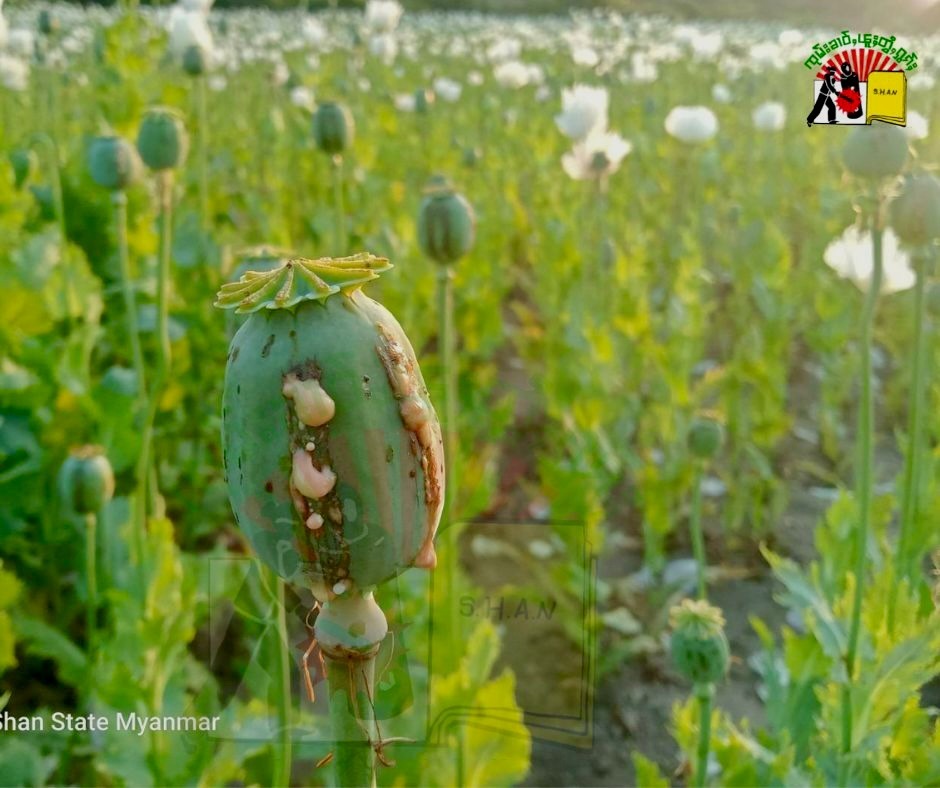
Sai Kham Phu emphasized that “it is important to concentrate on multifaceted rural development initiatives in rural areas where poppy cultivation is prevalent. On the other hand, long-term support is needed to reduce farmers’ cultivation of poppies, such as the creation of a market for alternative crops”.
Sai Kham Phu added that the long-standing civil war in Shan State has led to the involvement of militia groups and ethnic armed groups, both directly and indirectly, in opium cultivation and drug production.
The majority of poppy growing areas are located in mountainous regions that make transportation of crops difficult. Growing other crops in these areas also presents challenges, as there may be limited markets and prices may not be favorable. This has made it increasingly difficult for families to sustain their livelihoods.
As a result of the convenience of transportation and the potential for greater prices, people turn to opium cultivation as their main means of earning money for their families.
The government had a project to cultivate alternative crops instead of poppy with the support of the United Nations from 1976 to 2014, aiming to reduce and eliminate poppy cultivation. However, according to a 2014 report titled “Bouncing Back: Relapse in the Golden Triangle” by the Transnational Institute (TNI), the efforts to eradicate opium were not successful.
The United Nations Office on Drugs and Crime (UNODC) has emphasized the importance of addressing the socio-economic conditions of communities in order to effectively tackle poppy cultivation. They believe that improving rural livelihoods is key to reducing poppy cultivation in the long term.
According to the people of Shan State, farmers who want to switch from growing poppies to other legitimate occupations (cultivations) are currently facing challenges with market success for alternative crops.
Poppy cultivation will continue to rise, in Loong Sai Sandi’s opinion, as long as there is political turmoil in the country. He also stresses the necessity of maintaining national peace and the significance of creating substitute crops for poppy cultivation. Alternative crops must be able to be transported to markets efficiently, which calls for good transportation.
Loong Sai Sandi expressed his viewpoint, saying, “There will be less poppy planting if the transportation and communication facilities are improved. People would definitely stop engaging in the cultivation of poppies if there were also a stable political system and competitive pricing for alternative crops.”






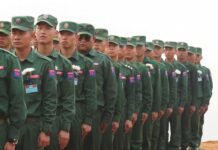
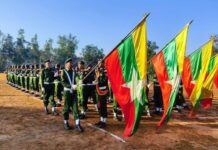








Leave a Comments